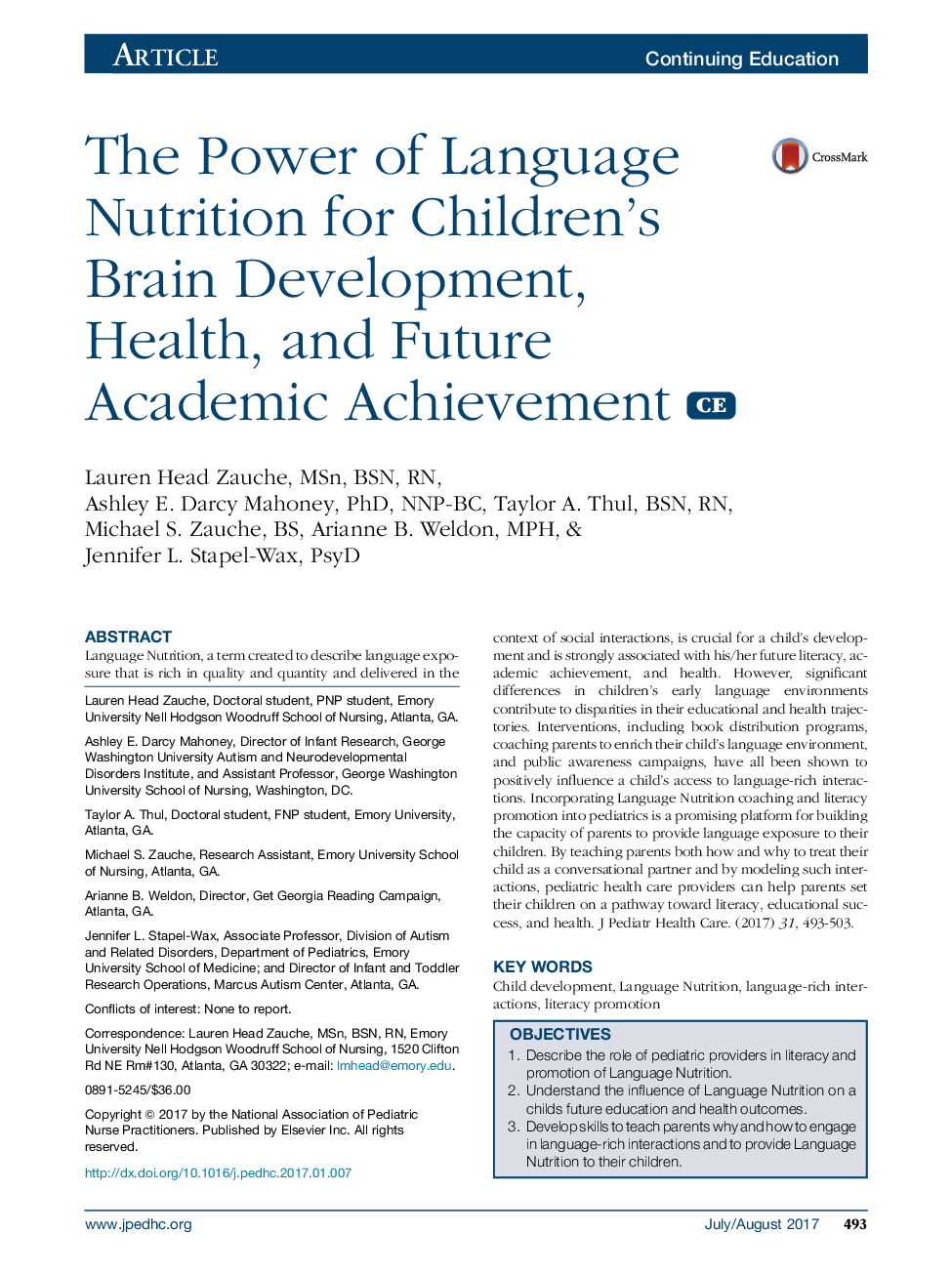ترجمه فارسی عنوان مقاله
قدرت تغذیه زبان برای توسعه مغز کودکان، سلامت و پیشرفت تحصیلی آینده
عنوان انگلیسی
The Power of Language Nutrition for Children's Brain Development, Health, and Future Academic Achievement
| کد مقاله | سال انتشار | تعداد صفحات مقاله انگلیسی |
|---|---|---|
| 155617 | 2017 | 11 صفحه PDF |
منبع

Publisher : Elsevier - Science Direct (الزویر - ساینس دایرکت)
Journal : Journal of Pediatric Health Care, Volume 31, Issue 4, JulyâAugust 2017, Pages 493-503
ترجمه کلمات کلیدی
رشد کودک، تغذیه زبان، تعاملات غنی زبان، ارتقای سوادآموزی،
کلمات کلیدی انگلیسی
Child development; Language Nutrition; language-rich interactions; literacy promotion;
ترجمه چکیده
تغذیه زبان، اصطلاح ایجاد شده برای توصیف ظاهر زبان که غنی در کیفیت و کمیت است و در تعاملات اجتماعی تحویل داده شده است، برای توسعه کودک بسیار مهم است و به شدت با سواد آینده، موفقیت تحصیلی و سلامت او ارتباط دارد. با این حال، تفاوت های قابل توجه در محیط زیست کودکان زودرس باعث عدم تفاوت در مسیرهای آموزشی و بهداشتی آنها می شود. مداخلات، از جمله برنامه های توزیع کتاب، والدین مربیگری برای غنی سازی محیط زبان کودک و کمپایل های آگاهی عمومی، نشان داده اند که تأثیر مثبتی بر دسترسی کودک به تعاملات غنی زبان دارد. تدوین مربیگری و سواد آموزی تغذیه زبان در کودکان، یک پلت فرم امیدوار کننده برای ایجاد توانایی والدین برای ارائه زبان در معرض کودکان است. با تدریس والدین هر چه که و چرا برای برخورد با فرزند خود به عنوان یک شریک صحبت و با مدل سازی چنین تعاملات، ارائه دهندگان مراقبت های بهداشتی کودکان می توانند والدین فرزندان خود را در راه سواد آموزی، موفقیت تحصیلی و سلامت کمک کنند.

